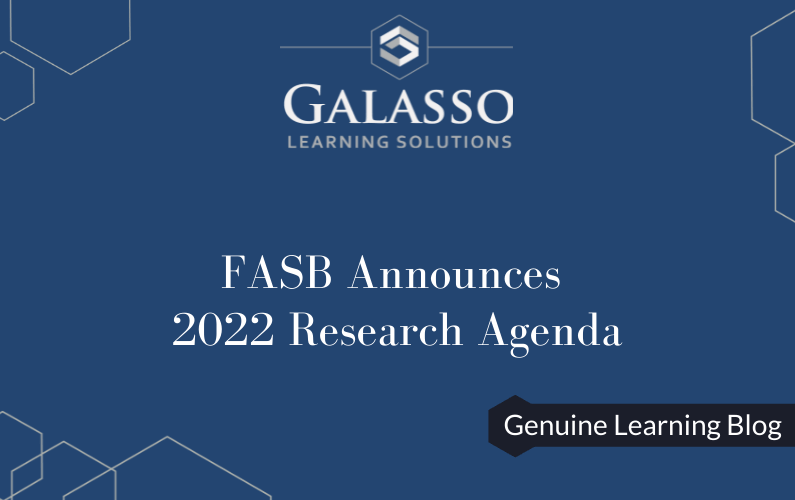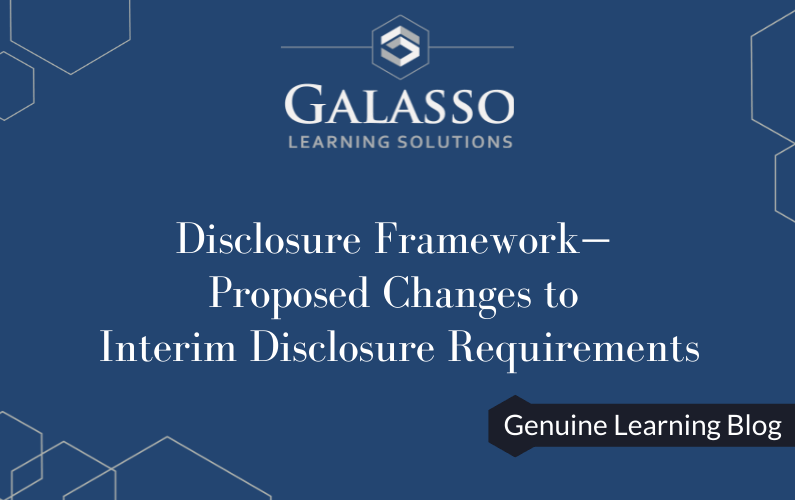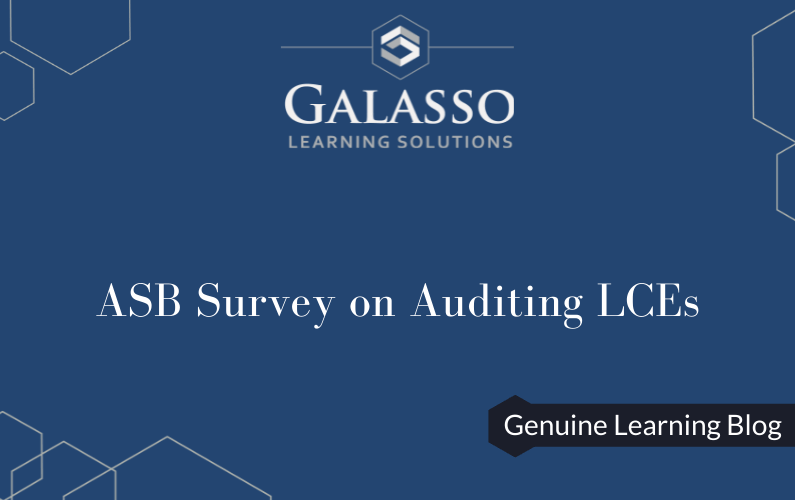FASB Announces 2022 Research Agenda
FASB announced its updated research agenda based off of initial discussions of the earlier 2021 Invitation to Comment. The ITC was an agenda consultation project to hear from stakeholders what their thoughts were on the next phase of standard setting. The research agenda includes 6 items that if approved will move to the standard setting agenda.
Temporary Policy Statement Related to the USERRA
The AICPA’s Professional Ethics Executive Committee (PEEC) has issued a Temporary Policy Statement Related to the Uniformed Services Employment and Reemployment Rights Act (USERRA) and parallel state statutes. They are providing an exception to the simultaneous employment requirements, assuming certain qualifications are met, for employees who provide services to the military and are also serving in the armed forces. The temporary policy is effective until rescinded by PEEC.
Disclosure Framework – Proposed Changes to Interim Disclosure Requirements
The FASB has issued an exposure draft as part of its Disclosure Framework project to update the disclosure requirements for interim reporting. The proposal follows ASU 2018-13 and 2018-14 in updating disclosures using the new conceptual framework. Comments are due January 31, 2022.
SEFA Reporting for Provider Relief Funds
The AICPA has issued a Technical Q&A to address questions surrounding reporting on the SEFA when the amount reported does not tie back to the financial statements due to DHHS’s requirement to report based on the reporting to the Portal. The TQA provides guidance on the application of AU-C 725 to this scenario.
ASB Survey on Auditing LCEs
The AICPA’s Auditing Standards Board (ASB) is interested in hearing from auditors who perform audits of less complex entities (LCEs). They want to know your thoughts on what the ASB can do to make GAAS more scalable including even potentially issuing a separate set of standards! Give your feedback by November 22 to be heard.
SSARS Proposal – QM
The AICPA’s Accounting & Review Services Committee (ARSC) has issued an exposure draft titled Quality Management for an Engagement Performed In Accordance with SSARS. As the AICPA has already exposed changes to the current quality control standards and a related SAS about QM at the engagement level, ARSC is providing guidance on the application of QM to SSARS engagements. Comments are due by January 31, 2022.
GLS Retreat Recap
The GLS team held their first retreat in Orlando, FL earlier this month. Leveraging Disney excellence in customer service and quality, we used the home of the Magic Kingdom as the setting for our retreat. Our three day retreat offered each person an opportunity to lead sessions and help advance the company’s goals. We focused on areas for improvements and celebrated our wins. We used the Disney Institute book titled ‘Be Our Guest’ as the basis for the agenda of our retreat. In addition to deep work, we also had some fun team building experiences. Overall, we got a lot out of our 3 days together and we look forward to making it an annual tradition!
Proposed Ethics Revisions: Loans, Acquisitions, and Other Transactions
The AICPA has issued a proposal to update key terminology and certain ethics interpretations to better align with changes made by the SEC. The AICPA issued a temporary enforcement policy earlier this year. The goal is for this proposal to make the needed alignments. Comments are due January 5, 2022.
Disclaimer: The information contained within this blog is provided for informational purposes only. Viewing this material does not qualify for CPE credit. Additionally, this general knowledge is not intended to substitute for obtaining accounting, legal, or financial advice from a professional accountant with specific knowledge of your organization. Finally, watching this blog and/or subscribing to the newsletter do not create an accountant-client relationship.











